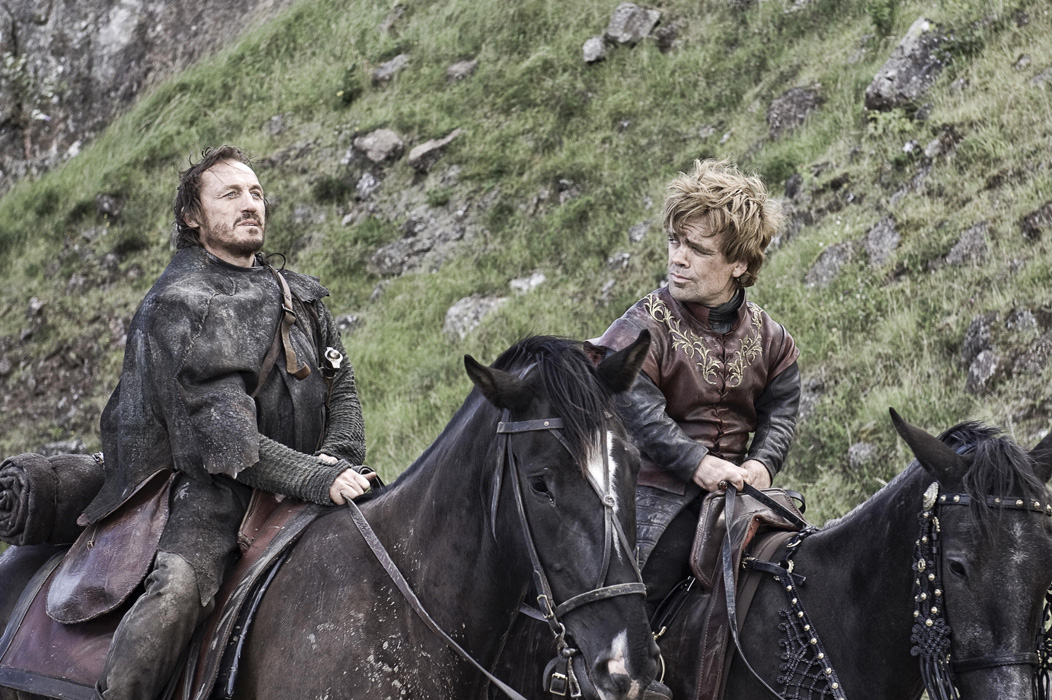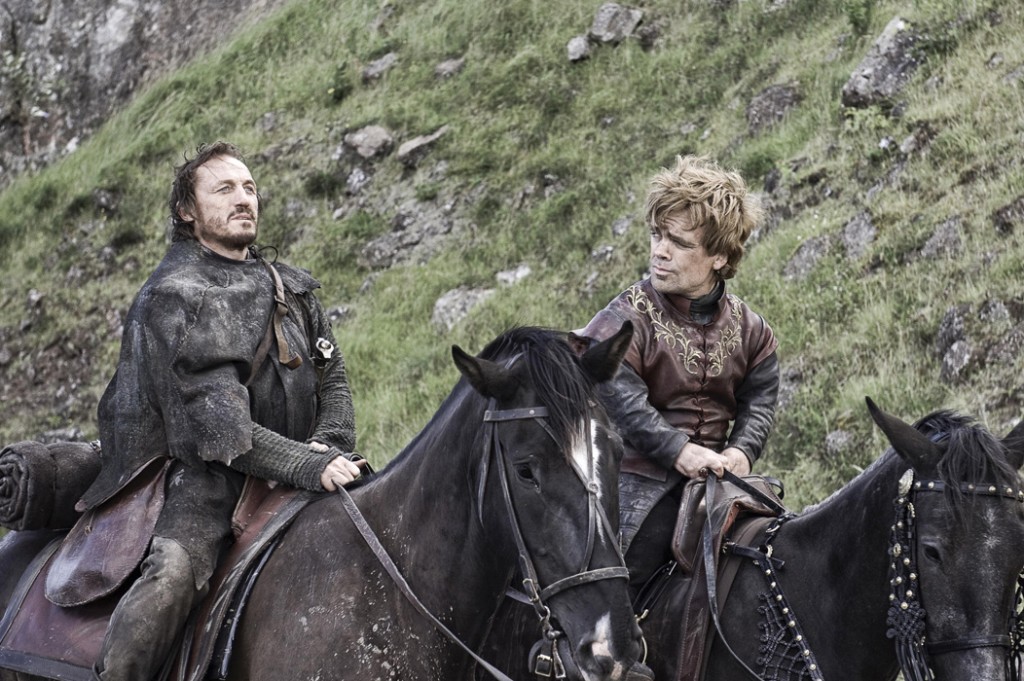Game of Thrones, Episode 4: ‘Cripples, Bastards, and Broken Things’
Written by Bryan Cogman
Directed by Brian Kirk
At this point in the progression of Game of Thrones, we’re approaching the point at which a character/actor list becomes a dear accessory. With significant developments deployed over four distinct realms (Winterfell, King’s Landing, the North Gate, and across the water with the Dothraki horde) and new figures and backstories emerging in each one, there’s evidence of the influence of another HBO series: Deadwood. Like Thrones, David Milch’s vivid western-qua-sociology-lecture introduced us to its principal figures over its first two episodes, then allowed new ones to enter via stagecoach in nearly every new installment, until it had built up a stable of several dozen characters.
Thrones has also been gradually adding characters, but it doesn’t have the advantage of a unified sense of place, making the act of keeping track of all these moving parts a little trickier. And trickier still: this is the first episode that delves deeply into the mythologies of its respective clans. Viserys, in an enflamed speech given whilst fucking (another Deadwood hallmark – just saying), speaks of the formation of the swordd-laden throne of Westeros, forged by great dragons at the expense of countless human warriors. In the very next scene, Ed’s older daughter Sansa regurgitates a less exciting factoid about the thrones having been built by some Lord, though of course the only bit of history regarding the throne room that interests her is the manner in which her grandfather and uncle were slain. At some point, the Targaryen, Lanniester and Stark versions of history must collide, but for now things remain on a low simmer.
As the episode’s title indicates, this week we see a renewed interest in the downtrodden, which is subtly expanded to include two of Stark’s non-Jon children: Bran, who seemingly will never walk again, and can therefore never fulfill his dream of being a Knight; and Arya, whose proclivities are not towards child-rearing and good keep-keeping, but instead towards battle and adventure. It also includes new figure Samwell (Joseph Mawle), an obese coward who comes to the Night Watch because he has no other choice, and is protected by the sympathetic Jon. Samwell is notable because he might be the first significat figure who has no ties to royalty whatsoever – neither spurned by it, nor having designs on entering it, or even having dreamt of it.
While that’s a pleasing development, there’s a nagging problem with Thrones at this point in the overall narrative: too much tell, not enough show. Between Viserys (whose general uselessness means his demise must surely be close at hand), Baelish, Sansa’s teacher, the elderly King’s councilman, Jaime Lannister, and Ed Stark himself, there’s much discussion of the past, but a pronounced lack of forward momentum. (It risks becoming, as the King’s councilman says of a sure-to-be important book, “a ponderous read”) That’s why its’ incredibly refreshing when, though she’s way off base, Catelyn Stark – having plotted an elaborate ambush in, of course, a brothel – has Tyrion arrested for attacking her son. She might be wrong, but she’s at least more action than words. Surely we must almost be through world-building at this point.
Simon Howell


